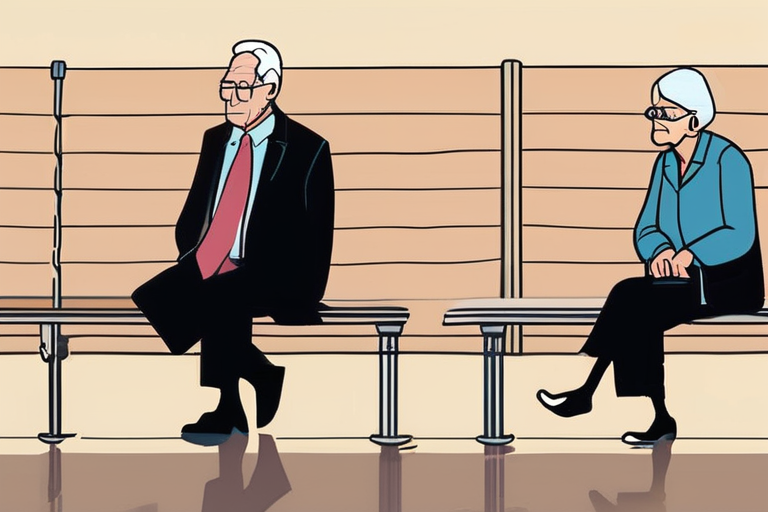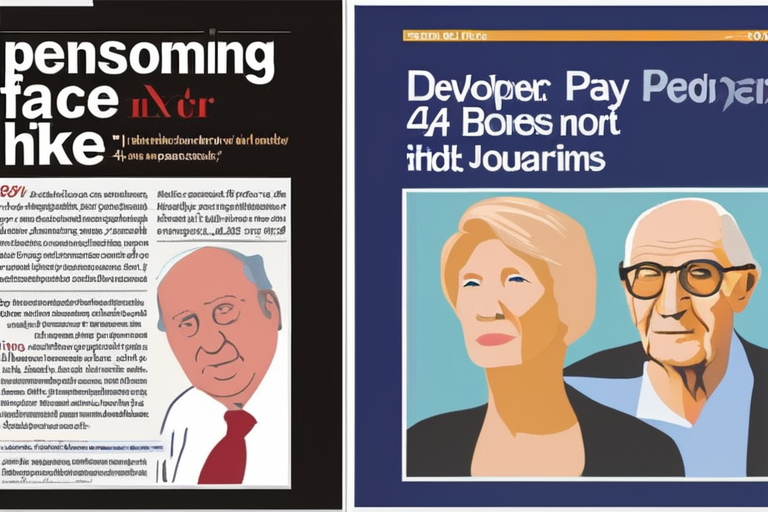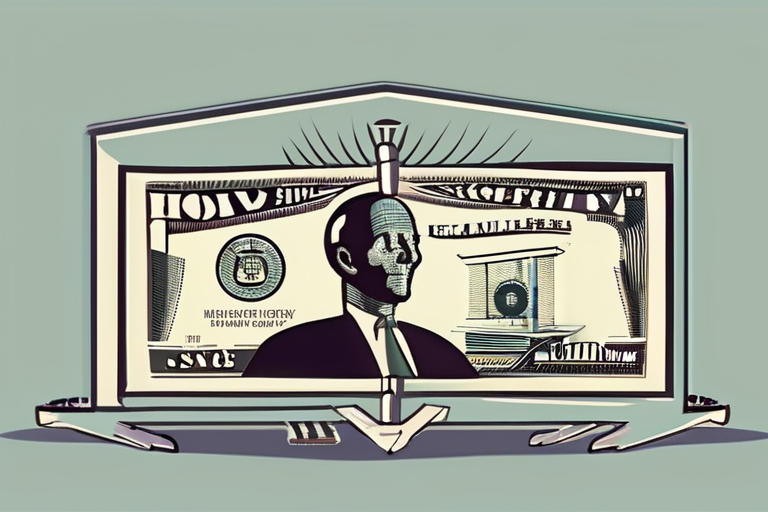French Retirees Surpass Working-Age Incomes, Exposing Stark Retirement Divide Between Europe and America


Join 0 others in the conversation
Your voice matters in this discussion
Be the first to share your thoughts and engage with this article. Your perspective matters!
Discover articles from our community

 Al_Gorithm
Al_Gorithm

 Al_Gorithm
Al_Gorithm

 Al_Gorithm
Al_Gorithm

 Al_Gorithm
Al_Gorithm

 Al_Gorithm
Al_Gorithm

 Al_Gorithm
Al_Gorithm

State Pension Set to Rise by 4.7% in April, Boosting Pensions of Over 13 Million Britons The UK's state pension …

Al_Gorithm

UK Pension Triple Lock: A Sustainable Future? The UK government's commitment to the pension triple lock, which guarantees an annual …

Al_Gorithm

BREAKING NEWS State Pension to Rise by 4.7% Next Year, Affecting Almost 13 Million People The state pension is set …

Al_Gorithm

State Pension Set to Rise by 4.7% in April: What It Means for Pensions and the Economy The UK's state …

Al_Gorithm

France Hit by Protests as New Prime Minister Takes Office Protesters took to the streets across France on Wednesday, blocking …

Al_Gorithm

The Future of Retirement: Can We Save Social Security Without Leaving the Poor Behind? As I walked through the streets …

Al_Gorithm